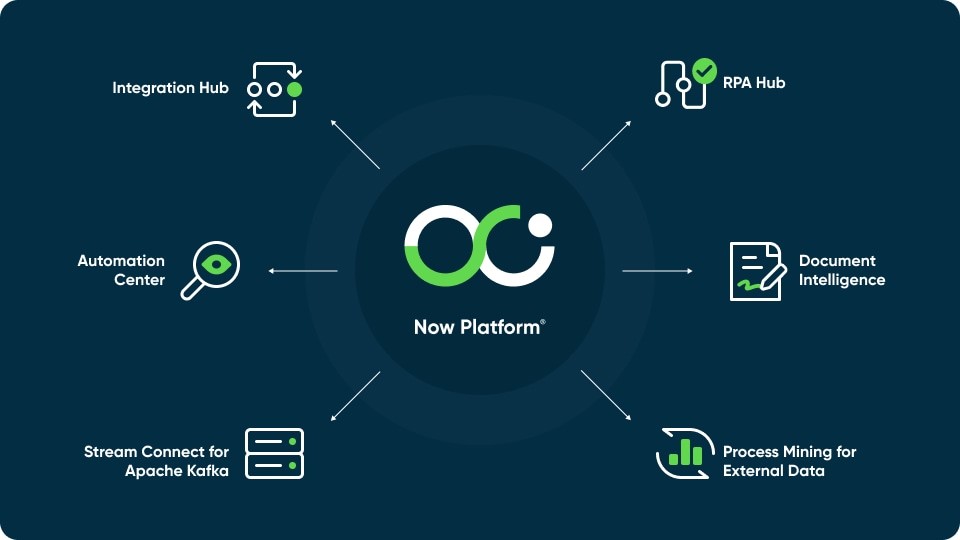Introduction
ServiceNow Automation is a powerful tool designed to streamline and optimize business processes by automating routine tasks, particularly within IT operations. It enables organizations to improve efficiency, reduce manual workloads, and enhance service delivery. By leveraging workflows, robotic process automation (RPA), and data-driven insights, ServiceNow Automation helps businesses handle incidents, service requests, and other tasks with greater speed and accuracy, ultimately driving cost savings and improving overall operational performance. Aspiring ServiceNow Developer can join a training program for the best skill development.
What Is ServiceNow?
ServiceNow is a cloud-based platform designed to help organizations automate and manage various business processes, primarily focused on IT service management (ITSM). It streamlines operations by providing tools for incident management, problem resolution, and service requests, all within a unified interface.
ServiceNow operates on the principle of ITIL (Information Technology Infrastructure Library), helping organizations follow best practices for managing IT services. Its modular structure allows businesses to adopt a range of services, including asset management, HR service delivery, and customer service management.
One key feature of ServiceNow is its workflow automation. By automating routine tasks, it reduces the workload on IT teams, allowing them to focus on more complex issues. It also integrates with various other enterprise systems, making it a highly adaptable solution for diverse business needs.
With its comprehensive reporting and analytics, organizations can gain insights into their IT performance and continuously improve their processes. Additionally, ServiceNow is highly customizable, enabling businesses to tailor the platform according to their unique requirements.
What Is ServiceNow Automation?
ServiceNow Automation refers to the use of workflows and tools within the ServiceNow platform to streamline and automate repetitive business processes, particularly in IT operations. It helps eliminate manual tasks like incident handling, change requests, and service requests by automating these workflows, reducing human error, and increasing efficiency. Professionals can join the ServiceNow Developer Online Training to learn more.

With ServiceNow Automation, businesses can create predefined workflows using drag-and-drop interfaces, automate ticketing systems, and integrate various enterprise applications. The platform supports robotic process automation (RPA) to enhance efficiency by automating even more complex and time-consuming tasks.
Automation also enables proactive issue resolution, where ServiceNow can detect potential problems before they impact users, triggering automated responses. This leads to faster problem resolution, reduced downtime, and improved service delivery.
Why Is ServiceNow Automation Important?
ServiceNow Automation is important because it streamlines business processes, enhances productivity, and significantly reduces operational costs. By automating repetitive tasks such as ticket handling, incident resolution, and service requests, ServiceNow Automation helps organizations achieve faster, more efficient operations with fewer errors.
Key reasons why ServiceNow Automation is important:
1. Improved Efficiency and Productivity
Automation eliminates time-consuming manual tasks, freeing up employees to focus on more strategic and complex issues. For example, repetitive tasks like password resets, system updates, and ticket assignments can be automated, resulting in quicker response times and higher overall productivity.
2. Cost Reduction
By automating routine processes, businesses can reduce the need for manual labor, leading to a reduction in operational costs. This has generated huge demand for the ServiceNow Developer. Automation helps companies save resources, minimize human errors, and reduce downtime, all of which contribute to cost savings.
3. Faster Incident Resolution
ServiceNow Automation accelerates the handling of incidents by automating ticket creation, routing, and escalation. This enables faster incident resolution, reduces bottlenecks, and minimizes downtime, ensuring seamless service delivery.
4. Enhanced Service Delivery
Automation improves the overall customer experience by ensuring that service requests are handled consistently and quickly. Automated workflows ensure that tasks are processed in the correct sequence, with fewer delays, improving service reliability and customer satisfaction.
5. Scalability and Flexibility
As businesses grow, ServiceNow Automation allows for easy scaling without requiring a proportional increase in resources. Automated processes can handle larger workloads without sacrificing speed or accuracy, making it a flexible solution for organizations of any size.
6. Data-Driven Insights
Automation generates data on task completion times, service efficiency, and system performance, providing organizations with insights to optimize their processes further. It allows businesses to monitor and improve operations continually.
Thus, ServiceNow Automation is critical for modern businesses to remain competitive, as it drives efficiency, lowers costs, and enhances both employee and customer experiences. Therefore, investing in the ServiceNow Developer Online Trainingcan be a game changer for aspiring professionals.
Conclusion
ServiceNow Automation is vital for businesses seeking to streamline operations, enhance efficiency, and reduce costs. By automating routine tasks, it improves service delivery, accelerates incident resolution, and boosts productivity. Its scalability and data-driven insights further empower organizations to optimize processes and remain competitive in a dynamic environment.
FAQs
1. What is ServiceNow Automation?
ServiceNow Automation automates routine tasks like incident handling and service requests. It uses workflows and robotic process automation (RPA) to improve efficiency and reduce manual labor.
2. Why is ServiceNow Automation important?
It streamlines processes, reduces human error, and increases productivity by automating repetitive tasks, enabling faster incident resolution, cost savings, and better service delivery.
3. How does ServiceNow Automation improve efficiency?
By automating routine tasks, ServiceNow frees up employees from manual work, allowing them to focus on more complex tasks, leading to faster processing and higher productivity.
4. Can ServiceNow Automation be customized?
Yes, ServiceNow Automation is highly customizable. Businesses can tailor workflows and processes to meet their needs, ensuring flexibility and scalability.
5. What types of tasks can be automated in ServiceNow?
Common automated tasks include ticket creation, incident management, password resets, system updates, and approval workflows, all aimed at reducing manual intervention.



